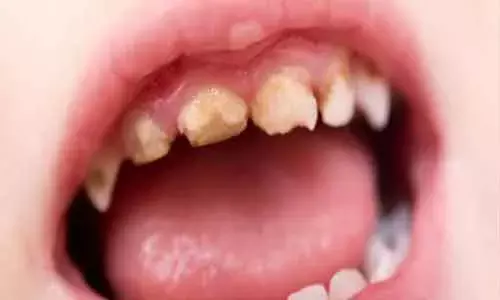- Home
- Medical news & Guidelines
- Anesthesiology
- Cardiology and CTVS
- Critical Care
- Dentistry
- Dermatology
- Diabetes and Endocrinology
- ENT
- Gastroenterology
- Medicine
- Nephrology
- Neurology
- Obstretics-Gynaecology
- Oncology
- Ophthalmology
- Orthopaedics
- Pediatrics-Neonatology
- Psychiatry
- Pulmonology
- Radiology
- Surgery
- Urology
- Laboratory Medicine
- Diet
- Nursing
- Paramedical
- Physiotherapy
- Health news
- Fact Check
- Bone Health Fact Check
- Brain Health Fact Check
- Cancer Related Fact Check
- Child Care Fact Check
- Dental and oral health fact check
- Diabetes and metabolic health fact check
- Diet and Nutrition Fact Check
- Eye and ENT Care Fact Check
- Fitness fact check
- Gut health fact check
- Heart health fact check
- Kidney health fact check
- Medical education fact check
- Men's health fact check
- Respiratory fact check
- Skin and hair care fact check
- Vaccine and Immunization fact check
- Women's health fact check
- AYUSH
- State News
- Andaman and Nicobar Islands
- Andhra Pradesh
- Arunachal Pradesh
- Assam
- Bihar
- Chandigarh
- Chattisgarh
- Dadra and Nagar Haveli
- Daman and Diu
- Delhi
- Goa
- Gujarat
- Haryana
- Himachal Pradesh
- Jammu & Kashmir
- Jharkhand
- Karnataka
- Kerala
- Ladakh
- Lakshadweep
- Madhya Pradesh
- Maharashtra
- Manipur
- Meghalaya
- Mizoram
- Nagaland
- Odisha
- Puducherry
- Punjab
- Rajasthan
- Sikkim
- Tamil Nadu
- Telangana
- Tripura
- Uttar Pradesh
- Uttrakhand
- West Bengal
- Medical Education
- Industry
Chemical found in drinking water linked to dental caries in children

Researchers at West Virginia University School of Dentistry have found that children with higher concentrations of a certain chemical in their blood are more likely to get cavities. They conducted research to determine the association of seven perfluoroalkyl and polyfluoroalkyl substances versus dental caries experience in US children, ages 3–11 years.
Manufactured chemical groups called perfluoroalkyl and polyfluoroalkyl substances are universal as a result of extensive manufacturing and use. Although manufacturers no longer use PFAS to make nonstick cookware, carpet, cardboard, and other products, they persist in the environment. Scientists have linked them to a range of health problems--from heart disease to high cholesterol--but now R. Constance Wiener and Christopher Waters are exploring how they affect dental health.
They investigated whether higher concentrations of PFAS were associated with greater tooth decay in children. One of them--perfluorodecanoic acid--was linked to dental cavities. Their findings appear in the Journal of Public Health Dentistry.
"Due to the strong chemical bonds of PFAS, it is difficult for them to breakdown, which makes them more likely to be persistent within the environment, especially in drinking water systems," said Waters, who directs the School of Dentistry's research labs. "A majority of people may not be aware that they are using water and other products that contain PFAS."
The 629 children who participated in the study were 3 to 11 years old and were part of the National Health and Nutrition Examination Survey. Samples of the children's blood were analyzed for PFAS in 2013 and 2014. Their tooth decay and other factors--such as their race, their BMI and how often they brushed their teeth--were assessed.
Of the seven PFAS that Wiener and Waters analyzed, perfluorodecanoic acid was the one that correlated with higher levels of tooth decay.
"Perfluorodecanoic acid, in particular, has a long molecular structure and strong chemical bonds; therefore, it remains in the environment longer. As a result, it is more likely to have negative health consequences such as dental caries," said Dr. Wiener, an associate professor in the Department of Dental Practice and Rural Health.
But how does that influence happen? Wiener and Waters have a hypothesis. According to other research, perfluorodecanoic acid may disrupt the healthy development of enamel, which is what makes teeth hard. That disruption can leave teeth susceptible to decay.
However, when it comes to cavities, scientists haven't parsed perfluorodecanoic acid's mechanism of action yet. The topic warrants further investigation.
"While the findings of this study are important, there are some study limitations, and more work is needed to fully understand how this molecule impacts normal tooth formation," said Fotinos Panagakos, the School of Dentistry's vice dean for administration and research.
"The good news is that, in our study, about half of the children did not have any measurable amount of PFAS. Perhaps this is due to certain PFAS no longer being made in the US," Wiener said.
Another piece of good news is that the study reaffirmed the importance of dental hygiene and checkups. Children who brushed once a day or less frequently had significantly higher tooth decay than those who brushed at least twice daily.
Likewise, children who had not been to the dentist within the previous year were twice as likely to have higher rates of tooth decay than kids who hadn't.
So, even though parents cannot control what is in their children's drinking water, they can still protect their children's teeth by fostering thorough, regular brushing and scheduling dental exams.
The School of Dentistry will hold Give Kids a Smile Day on Friday, Feb. 7, at the Pediatric Dentistry Clinic. Dental students will treat more than 100 children for free that day. Each visit includes an exam, a cleaning, a fluoride treatment and--if appropriate--X-rays.
for further references log on
Dr Kamal Kant Kohli-MBBS, DTCD- a chest specialist with more than 30 years of practice and a flair for writing clinical articles, Dr Kamal Kant Kohli joined Medical Dialogues as a Chief Editor of Medical News. Besides writing articles, as an editor, he proofreads and verifies all the medical content published on Medical Dialogues including those coming from journals, studies,medical conferences,guidelines etc. Email: drkohli@medicaldialogues.in. Contact no. 011-43720751


